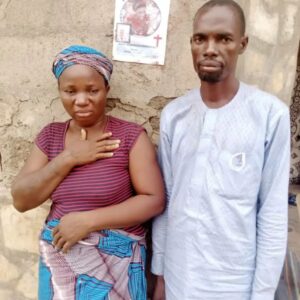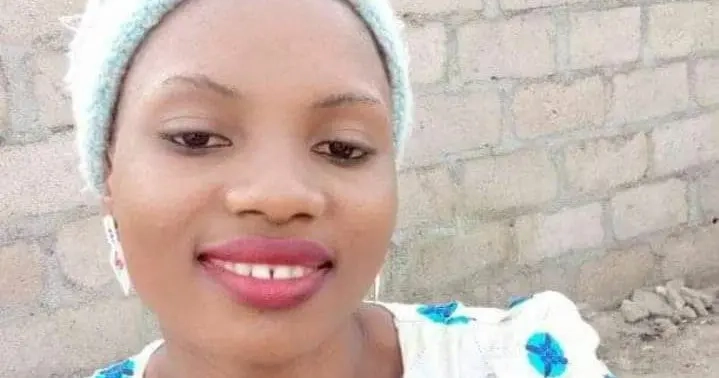Four weeks after the brutal mob murder of Deborah Samuel, a 22-year-old Nigerian Christian student of Shehu Shagari College of Education, reactions to her killing and the demand for the prosecution of her killers have not ceased.
On May 12, the young woman allegedly was lynched and set ablaze by a mob of Muslim fanatics, including her fellow students, who accused her of blaspheming Prophet Muhammed in a WhatsApp conversation she had with other students.
The WhatsApp group reportedly was created for students to share information on class assignments, but some students were said to share religious beliefs on the channel. Samuel, a student of economics, wasn’t pleased with that and was said to have told her colleagues to restrict their use of the WhatsApp medium to educational purposes only and not any other “nonsense.”
Witnesses said some of her classmates took offense at her choice of words and ended up stoning and setting her on fire. Videos of the horrific scene emerged online showing Samuel being stoned and hit with sticks, and another showing her burning body with one of her assailants brandishing a match box and saying in Hausa language, “I was the one who killed and burnt her with these matches.”
Witnesses said some of her classmates took offense at her choice of words and ended up stoning and setting her on fire.
The incident has continued to generate heated debate and controversy in Nigeria and around the world as reactions to her killing alternate between shock and disbelief, defense for or against the killing by opposing camps, anger and condemnation and a call for justice by many across the world.
Beyond the hoopla, the death further brought to the fore the tensions and schisms existing between Christians and Muslims in a multiethnic and religious society like Nigeria. After the outcry that trailed the gruesome murder, the police later charged two suspects — Bilyaminu Aliyu and Aminu Hukunci — for “criminal conspiracy and inciting of public disturbance.”
Speaking on how the incident occurred, the Sokoto State police command said the mob that killed Samuel overpowered the security staff at the school to get at her: “Students forcefully removed the victim from the security room where she was hidden by the school authorities, killed her and burnt the building. The students banded together with miscreants and barricaded the Sokoto/Jega road. Upon receiving the information, the DC Operations led a team of policemen and all other operational commanders in the state to the school where the road was cleared, and the situation was brought under control. Two students were arrested in connection with the crime committed. The school has been closed down by the school authority, and policemen were deployed to give tight security coverage.”
The arraignment of only two suspects and charge of public incitement in a clear case of murder infuriated people who consider the charges trivial and an attempt by authorities to allow the accused to escape the full weight of the law.
Seeking justice for Samuel, a group of Nigerian Americans wrote to U.S. Secretary of State Antony Blinkin to protest the murder. In a letter signed by Emmanuel Ogebe, a human rights activist and lawyer, and 16 other persons, the petitioners call for the full prosecution of all persons involved in Samuel’s death and contend this event is part of an escalation of massacres of Christians by Islamist Fulani militia in Plateau, Benue and Kaduna states.

Parents of Deborah Samuel
While noting that only two people were arrested by Nigerian authorities despite the fact that “the videos show dozens participated in her lynching,” the Nigerian Americans say “there should be more arrests and prosecution of all those involved in the killings.” To this end, they urged “the U.S. government to press the Nigerian government to provide appropriate protection for all citizens and bring to justice those who perpetrated killings.”
Amnesty International also lent its voice to the call for justice. A statement by the organization described the killing of Samuel as deplorable and said “authorities must ensure those responsible for her death are immediately arrested and brought to justice.”
Amnesty International also wants justice for other victims of mob attacks. “The Nigerian authorities must curtail the impunity that has led to an increase in mob violence and arrest all those involved in this reprehensible act,” its statement said. “A prompt, thorough, independent, impartial and effective investigation must also be launched on all cases of mob killings.”
The Christian Association of Nigeria also joined the call for justice and warned those who hide under the garb of religion to commit evil and their sponsors to be mindful of the fate that awaits them as the experience of Egyptians in the Red Sea shows. CAN “frowns on hiding under the garb of any religious extremism to perpetrate any form of criminality against her members, especially in northern Nigeria.”
Meanwhile, Samuels’ family has relocated from their Niger State home in the North Central region to Port Harcourt, a city in the south of the country where they were offered a car and flat by Chibuzor Chinyere, a pastor and general overseer of Omega Power Ministries.
Samuel was the eldest of eight children in her family.
Anthony Akaeze is a Nigerian-born freelance journalist who currently lives in Houston. He covers Africa for BNG
Related articles:
Tragic church attack in Nigeria claims more than 50 lives on Pentecost
In Nigeria, the politics of religion and the search for peace are never-ending

